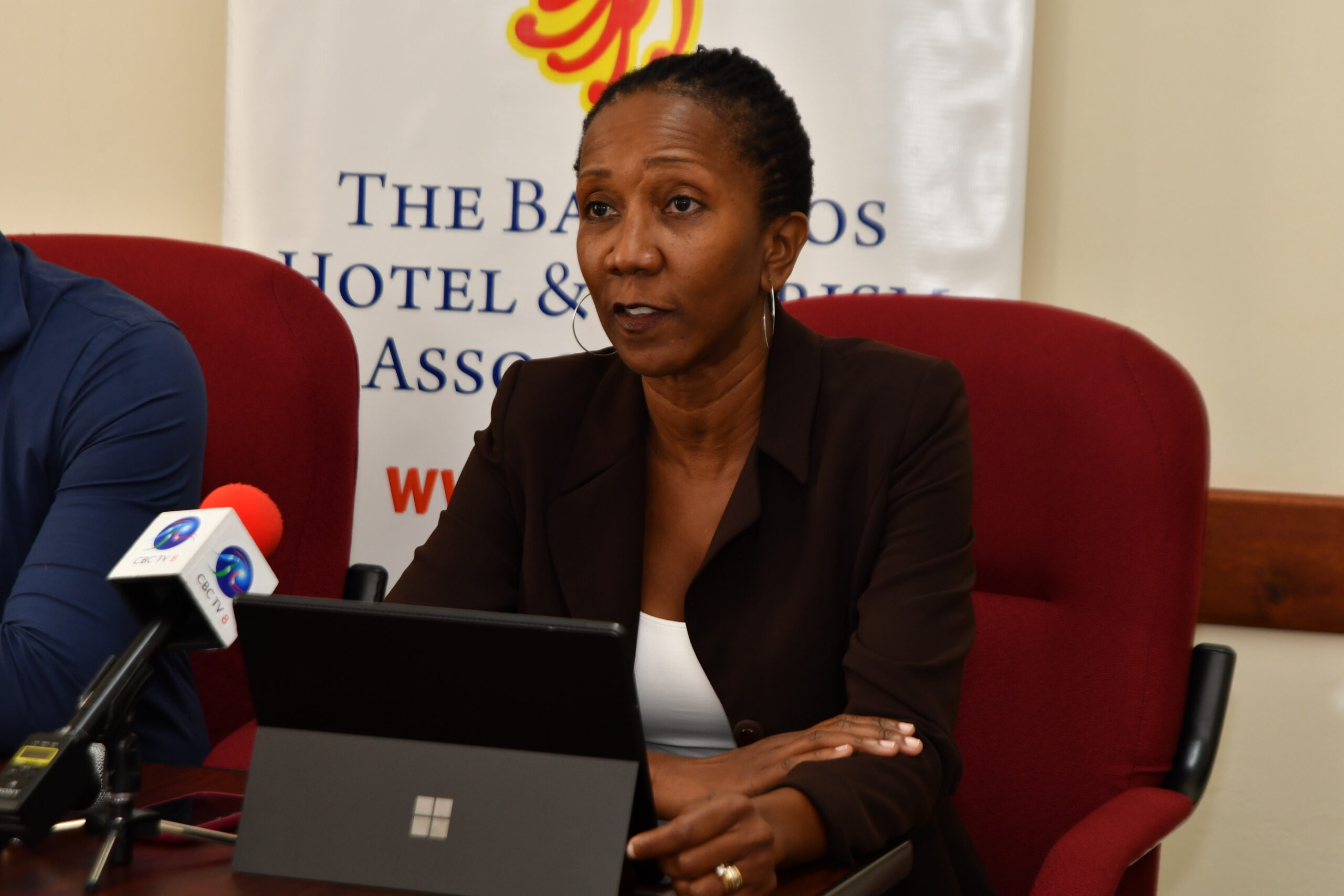The current chairman of the Barbados Hotel & Tourism Association (BHTA) Ms. Renee Coppin is easily one of the most dynamic and forceful leaders of the BHTA in many years. This is no discredit to any of her predecessors, but Ms. Coppin is thoughtful, articulate, and unafraid to confront the big issues and the personalities that interact with the sector.
As a hotel operator, and head of the BHTA, it is expected that she will fiercely defend the constituency that elected her to head that body.
The chairman tackled frontally many of the big issues that arose during the COVID-19 pandemic when activity in the sector came to a screeching halt.
Her voice was insistent, and she was the face of the sector pushing for the removal of many of the COVID restrictions put in place to mitigate the spread of the virus.
As a hotelier, she and other BHTA members were viewing the situation through the lens of owners. It is for this reason that we do not fault the BHTA head for robustly defending their interests.
The BHTA chairman has come out strongly against claims by the country’s largest trade union body, the Barbados Workers’ Union (BWU), that those in the tourism and hospitality sector were not extending the level of support to workers that they are expecting from the thousands who do the back-breaking work behind the scenes to keep the sector thriving.
Were visitors polled about their experiences in Barbados over the years, they are unlikely to say they keep returning to the island because of hotel or property owners. They will not say the hotel managers and restaurant owners caused them to return for a visit the following year.
Continuous research shows that Barbados’ significant repeat guests indicate it is “the people” including the ordinary hotel and restaurant workers, and average Barbadians they encounter on the streets, in supermarkets and at the beach that influenced their decision to return.
Though it may have hurt the sensibilities of hotel owners and employers when they were called out by the BWU, the BHTA and the Barbados Employers’ Confederation (BEC) must accept that employers and employees are not equally yoked. There is a very real and substantial power difference between the two groups.
The pay and benefits received by workers in the tourism sector do not reflect the importance of tourism to the Barbados economy or its relation to the country’s gross domestic product. Those are the facts.
Tourism workers, many of whom are not unionized, often take their chances fighting their own battles. For these workers, even the deduction of union dues is a burden in the high-cost environment that we live.
The fact that many of them are challenged with seasonal work, they know that speaking out about conditions during the winter season could translate into no work during the lean summer period when many of them are laid off.
That is the life of hospitality workers.
The BHTA boss stated emphatically: “We are at this time unaware of the issues of ‘worse treatment’ alleged by the deputy general secretary Mr [Dwaine] Paul . . . .”
At the same time, she cautioned: “It must, however, be remembered that all our members are distinctly owned and operated entities. This means that we do not have direct oversight of their businesses. It is therefore incumbent on the staff to ensure that they first raise any concerns directly with their employer via the human resources or general management mechanisms for resolution.”
Ms Coppin has indicated that the BHTA wants receipts from the BWU over claims of “worse treatment”.
Our question is to the BHTA is after receiving the receipts, what are you going to do about the “worse treatment”, and what power do you have to change the behaviour of members in the operation of their individual businesses?
]]>




